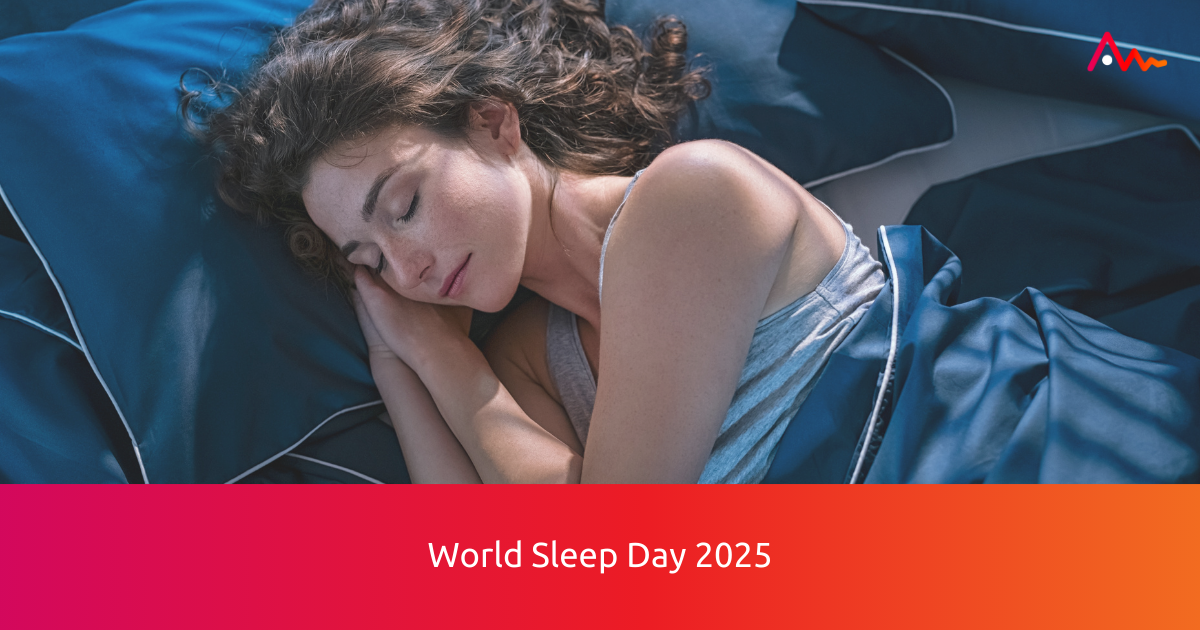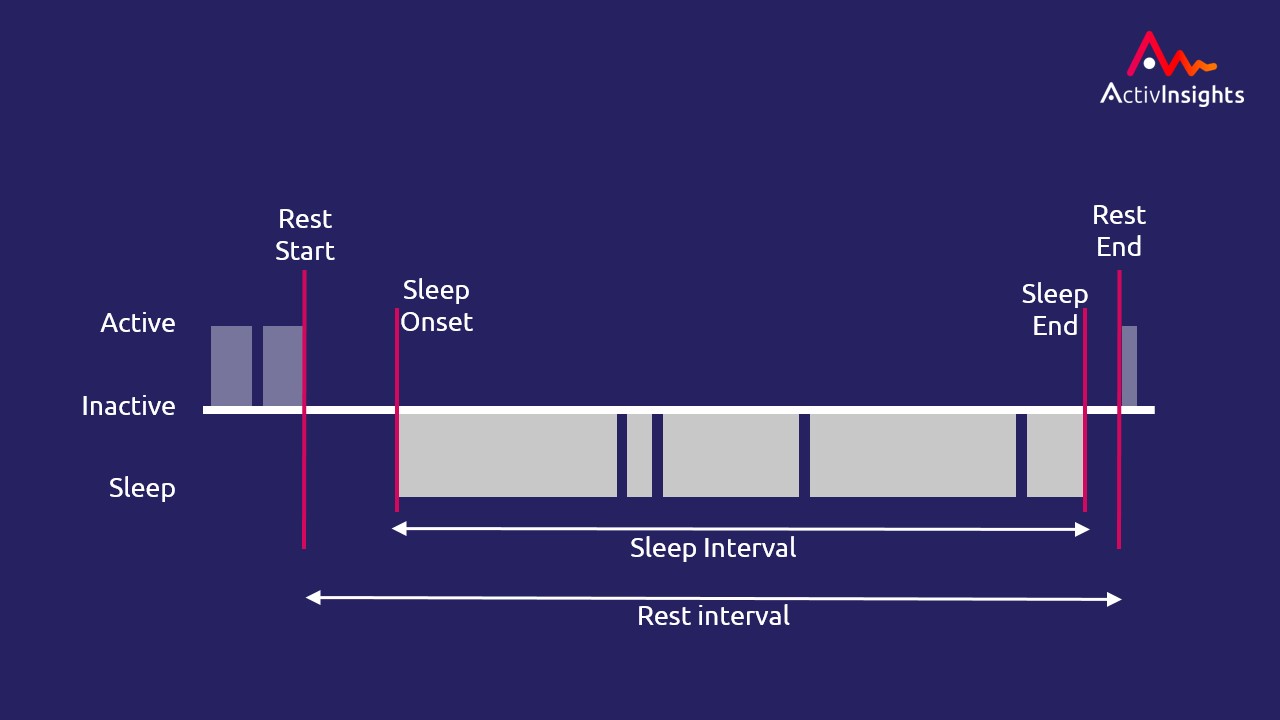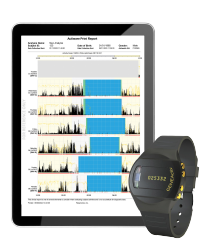News &
Insights
13 March 2025
World Sleep Day 2025
Sleep is the most important of our 24-hour physical behaviours. Measure sleep in real-world conditions.
Share This Post, Choose Your Platform!

Sleep is the most important of our 24-hour physical behaviours. Measuring sleep accurately and in real-world conditions is a priority for sleep clinicians and researchers.
High-resolution accelerometery from ActivInsights eases the burden of traditional sleep actigraphy for patients and clinicians, improving patient quality of life and reducing healthcare costs.
Traditional actigraphy devices required patients to keep daily sleep diaries or sleep clinicians to manually score sleep data to calculate sleep measures. New sensors in professional wearables combined with intelligent data analytics allows the determination of bed and rise times to be fully automated. Effective capture of sleep data outside of a sleep clinic simplifies access to real-world patient sleep data, cutting the time to treatment.
Measuring sleep behaviour using digital technologies
Wearable digital technologies allow us to measure sleep more comfortably, repeatably and continuously without the need for clinical input every night. The digital measures of sleep from professional wearables have been verified and validated in many peer-reviewed publications and clinical trials. Regulators and payers routinely accept them as evidence of safety and performance.
When assessing sleep health, sleep researchers and clinicians focus on key dimensions of sleep. Some of these are measured objectively (timing, duration, efficiency & regularity) and some (alertness & quality) represent how we feel about our sleep subjectively.
Objective measurement of sleep timing, duration, efficiency & regularity is underpinned by simple foundational measures:
- Going to bed time (Rest Start Time)
- Getting up time (Rest End Time)
- The period between those times (Rest Interval)
- The periods of sleep (Sleep Bouts)
Digital Measures of Sleep

The sensor-level, high-resolution raw sleep data captured using professional wrist-worn accelerometers can be processed using open algorithms at any point after data collection, making it future-proof for longitudinal analyses further down the line.
Automatic sleep scoring algorithms have been developed and validated by sleep researchers, having built-in automatic sleep period detection expertise that sleep clinicians can trust.
Removing the burden of manual sleep scoring, and subjective reporting on sleep clinicians and patients facilitates a more patient-centric approach, encouraging better adherence to wearable-derived sleep data capturing in the real-world. The higher-quality and comprehensive data outputs enable clinicians to maximize the application of their expertise in analysing wakefulness and activity during sleep, to complement their assessment of sleep health on a patient-by-patient basis.
The impact of sleep on health outcomes
Good quality sleep, along with healthy diet and exercise, is a pillar of health that is foundational to our wellbeing, helping our body to restore its energy and recover from stress.
Below are examples of the interactions between accelerometer-based measures of sleep and health outcomes:
Cardiovascular Health
Longer Sleep Duration and reduced Wake After Sleep Onset have been associated with reduced risk of cardiovascular disease, coronary heart disease, and stroke among 385 292 participants from the UK Biobank (Fan 2019).
Risk of Comorbidities & Long-term Conditions
The Whitehall II cohort study, which evaluated the Sleep Duration data of 7000+ adults captured over 25 years (age 50-75), reported a robust association between Sleep Duration of less than 5 hours per night and onset of a chronic disease, with subsequent risk of multimorbidity – longer Sleep Duration (over 9 hours per night) had no association with chronic disease (Sabia 2022).
Alertness & Decision Making
Inadequate Sleep Efficiency and consistently short Sleep Duration cause reduced alertness during the daytime, slower reaction times and an impaired ability to make sound decisions – critical factors impacting daily productivity and wellbeing.
In a study evaluating the effect of sleep on decision-making, accelerometer assessed Total Sleep Duration, Wake After Sleep Onset and Sleep Efficiency showed associations with impulsiveness and risk-taking depending on habitual decision-making responses – with individuals who had longer Sleep Durations being less likely to take unnecessary risks (Salfi 2020).
Metabolic Health
The Diabetes Remission Clinical Trial (DiRECT) explored associations between weight loss and accelerometer measured physical activity, inactivity and sleep. Decreased Wake After Sleep Onset and improved subjective sleep quality improved energy and activity levels during the day, leading to sustainable weight loss and improved chances of achieving remission of type 2 diabetes (Cassidy 2022).
Mood & Cognitive Performance
A study investigating the interactions between subjective and objective measures of sleep, cognitive functioning, and mood outcomes in a healthy population reported that individual emotional well-being and anxiety levels strongly influence subjective perception of sleep quality – with good mental well-being being linked to better sleep (Windmill 2024).
Cognitive Impairment: Dementia & Alzheimer’s Disease
A cross-sectional study found that longer accelerometer-measured Sleep Duration and more consistent Sleep Efficiency may protect against β-amyloid Alzheimer’s disease pathology (Fenton 2023).
The future of sleep medicine & research with wearable technology
As we look towards the future of sleep medicine and research, high-resolution professional wearable accelerometery will change the way we identify, understand and treat sleep disorders.
Complementing clinician assessment with modern automatic sleep scoring technologies provides a more complete picture of individual sleep behaviours, supporting faster identification and treatment of sleep disorders for better patient health outcomes.
References
Fan 2019
Sleep patterns, genetic susceptibility, and incident cardiovascular disease: a prospective study of 385 292 UK biobank participants, European Heart Journal, 41(11), pp. 1182-1189. https://doi.org/10.1093/eurheartj/ehz849
Sabia 2022
Association of sleep duration at age 50, 60, and 70 years with risk of multimorbidity in the UK: 25-year follow-up of the Whitehall II cohort study, PLOS Medicine, 19(10), e1004109. https://doi.org/10.1371/journal.pmed.1004109
Salfi 2020
Effects of Total and Partial Sleep Deprivation on Reflection Impulsivity and Risk-Taking in Deliberative Decision-Making, Nature and Science of Sleep, 12, pp. 309-324. https://doi.org/10.2147/NSS.S250586
Cassidy 2022
Physical activity, inactivity and sleep during the Diabetes Remission Clinical Trial (DiRECT), Diabetic Medicine, 39(11), e15010. https://doi.org/10.1111/dme.15010
Windmill 2024
Characterising the inconsistency between perceived and actual sleep and its impact upon cognition and mood, Scientific Reports, 14, 29342. https://doi.org/10.1038/s41598-024-59891-9
Fenton 2023
Variability in objective sleep is associated with Alzheimer’s pathology and cognition, Brain Communications, 5(2), fcad031. https://doi.org/10.1093/braincomms/fcad031


